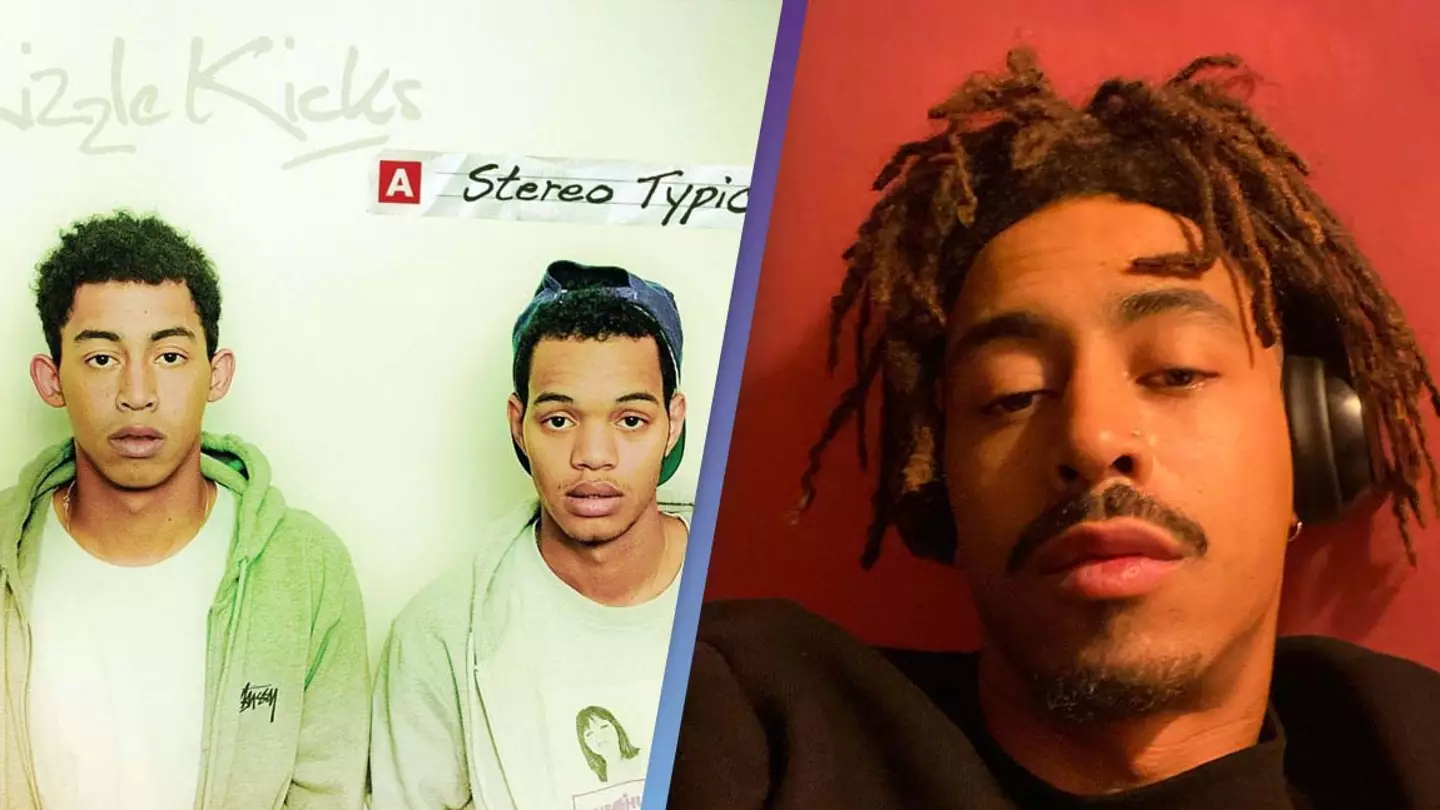
"Our calendar is ruled by these capitalist agendas and the system we live in commodifies literally anything. I’ve always found it weird how we’re boxed in, almost trapped by these boxes of days. And I think it should be more fluid than that. Blue Monday can occur any point of the year, depending on what that person’s going through, you know?"
January is described as being one of the most testing months of the year for mental health, with the third Monday having been termed 'Blue Monday' - the supposed 'most depressing day of the year'.
But why do we continue to use a phrase that is backed up with 'no credible evidence' and has been branded by scientists as 'baseless'? And why do companies still get away with using the day to target individuals when they're feeling low, particularly to sell them things that could further damage their mental well-beings, such as diet regimes and alcohol?
Jordan Stephens – from British hip hop duo Rizzle Kicks and Rogue One: A Star Wars Story – co-founded mental health movement #IAMWHOLE and recently launched a new non-alcoholic beer campaign with BrewDog to raise awareness of seasonal affective disorder (SAD) and how it's prevalent the whole of the winter season - not just the 17th.
Advert
'Blue Monday' was first coined by a travel company in 2005, branding 17 January as allegedly the 'most depressing day of the year' based on an 'equation' relating to colder weather conditions in the Northern Hemisphere.
However, the 'equation' was regarded by scientists as completely baseless and the former lecturer who first used the term, Dr Cliff Arnall, has since campaigned against it.
Speaking to The Independent, he explained he'd originally used the term to 'inspire people to take action and made bold life decisions', rather than 'to made the day sound negative'.
Jordan tells UNILAD about his 'hesitancy' at labelling certain days of the calendar and being 'forced to celebrate or look at things'.
"I think it can be very hit or miss, you know what I mean? Even international days [...] I’m a bit apprehensive of for various reasons," he continues. "But equally, they can be occasionally utilised in a really positive way, like I suppose you have International Women’s Day or International Men’s Day."

Admitting, 'Listen, I'm a cynic at heart as well. So I respect the questioning of hallmark holidays man,' Jordan draws parallels to the allocated month given to Black History.
He continues: "I mean, the most kind of triggering comparison would be having grown up with Black History Month and kind of just thinking that was quite offensive almost.
"I suppose that was your point about Blue Monday not being reflective of the entire year – it would be delusional to think that that singular Monday represents the most sad you can be."
Reflecting on the capitalist agenda behind the day, Jordan notes it's got 'to the point where it’s not even like a shock to [him]'.
"It's just how the system works man, we just live off this bizarre obsession with accumulation, you know?"

And indeed, despite Arnall's initial intentions, the phrase 'Blue Monday' has built up traction and been used by many companies as a marketing ploy.
Undoubtedly, the whole culture of sales is to target people. To make people feel like they need – rather than just want – a specific product, and to pick the prime opportunity in which to do so, like, for instance, when consumers are feeling low.
In January, people are mentally vulnerable, depressive states have likely been worsened by the weather, and many have been left exhausted, emotionally drained and financially stretched from the extravagance, build-up and pressure of Christmas.
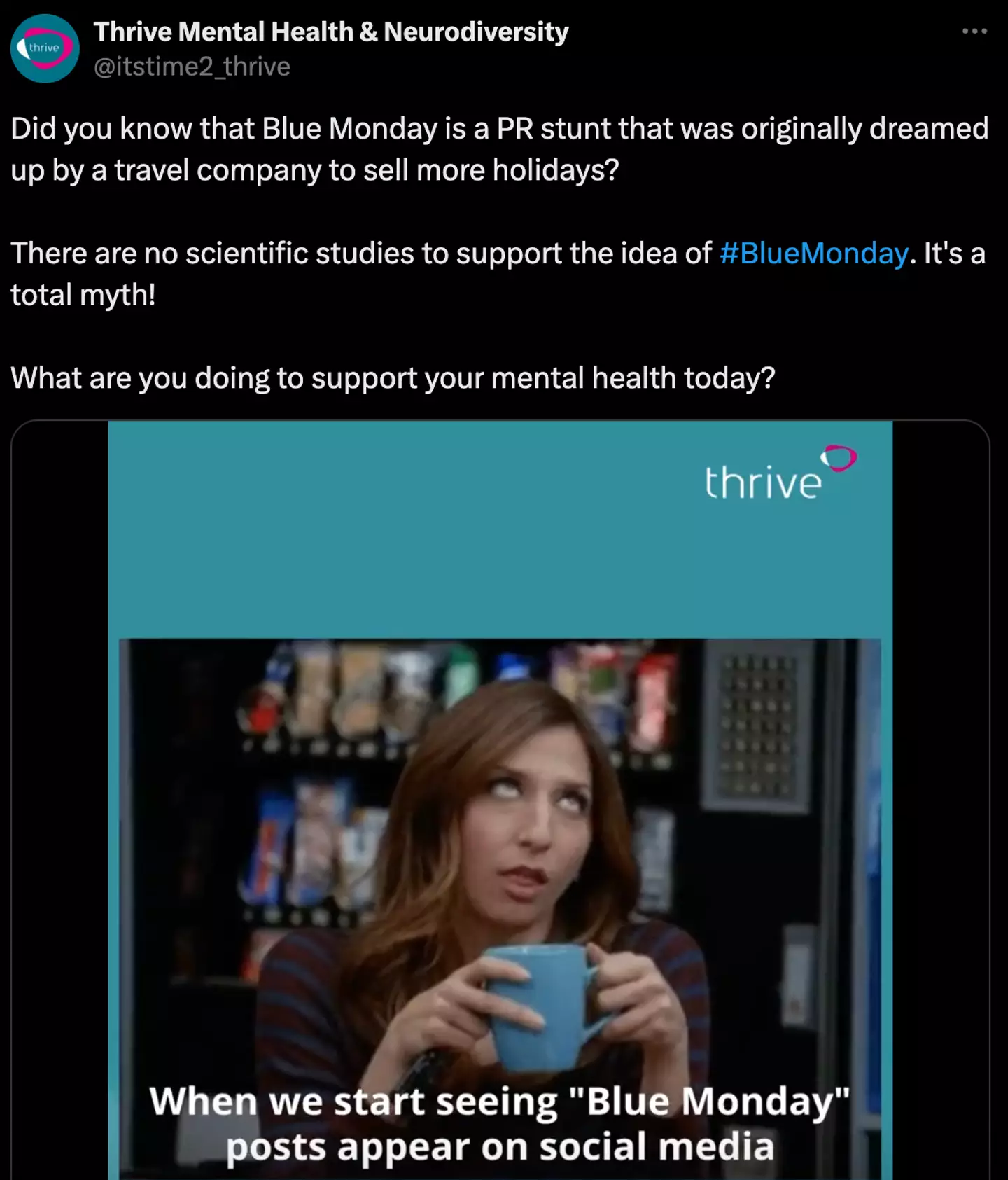
And financial pressure – while perhaps not being an issue 'exclusive to men at all' – is something Jordan views as being a prevalent one, which he hopes the SAD AF campaign can help combat.
He says: "This world, this system, is a big bully. And what’s even scarier about it is you get rewarded in the system if you are a big bully.
"So you are constantly in this conflict of, 'How do I keep myself as a reasonably rounded person, while not falling into the perpetual constant bombardment of inadequacy?'"
Jordan explains he feels like 'a lot of boys' see money as 'God, it’s a singular soul, God ruler, Emperor, only chasing that at the expense of like intimate relationships, like self-love, everything'.
So is it fair to target people at a time where their mental health could be even lower to spend more money, buy into the latest diet, or splurge on alcohol, which itself is a depressant?
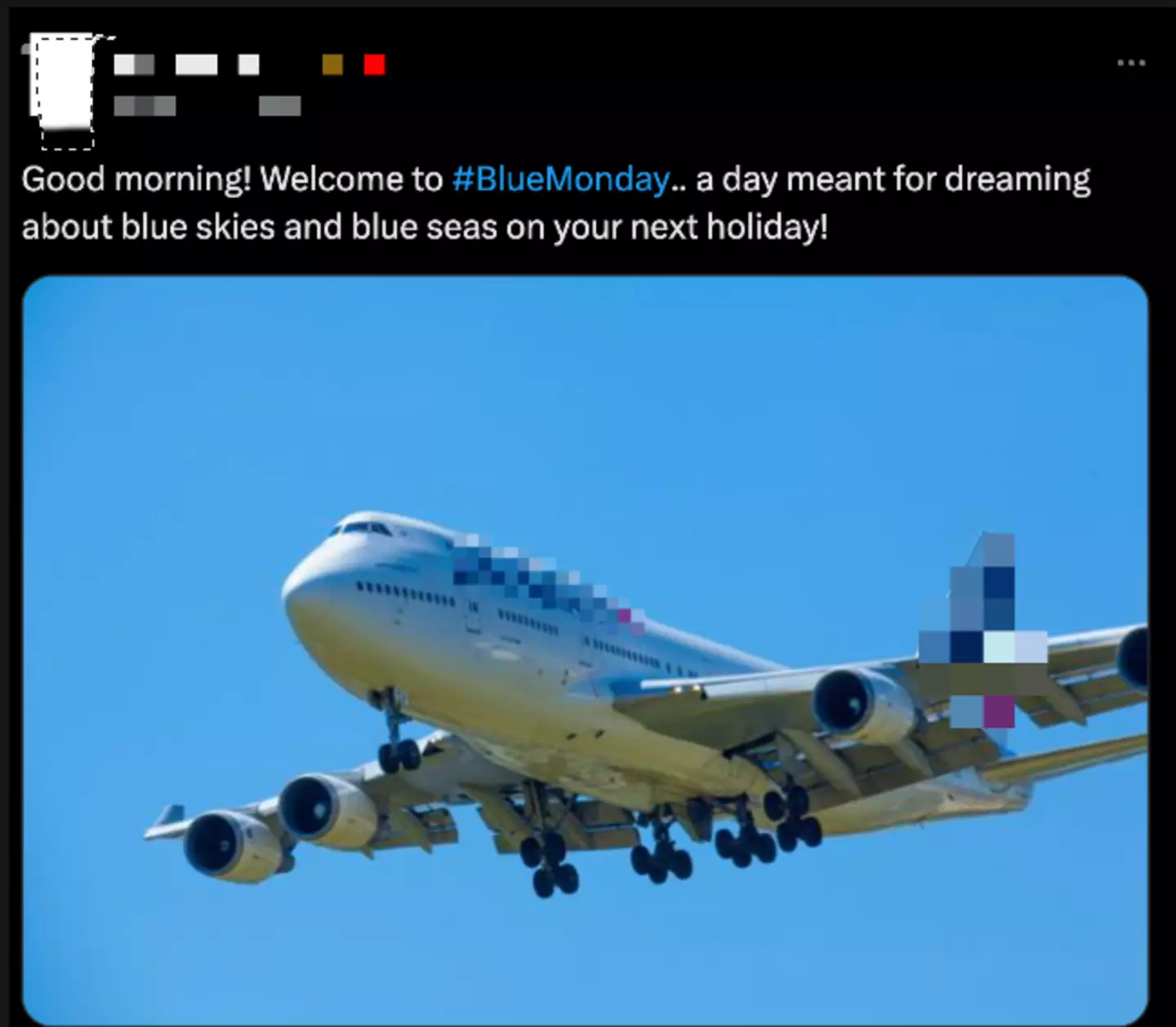
Nutritionist Laura Thomas previously noted how companies often prey on people during the post-Christmas period to 'make them feel guilty', explaining how capitalism tells consumers to 'eat as much as you possibly can, buy all the food, buy all the drink'.
Why? Well, because it 'lines someone’s pocket' prior to the festivities in a bid to then guilt-trip them into feeling like they've 'overindulged', and sell them diet fads and fitness regimes once it hits the New Year.
But alongside simply adding to the financial pressure that many face as a result of not only Christmas but a festive period during a pandemic, the pressure put on consumers around diet culture and to drink alcohol are particularly damaging ones.
The conversation with Jordan soon turns unexpectedly to an aspect of his life he hasn't really spoken about before – the musician's experience with body dysmorphia.
He begins hesitantly: "I don't know if this will make your article, but...
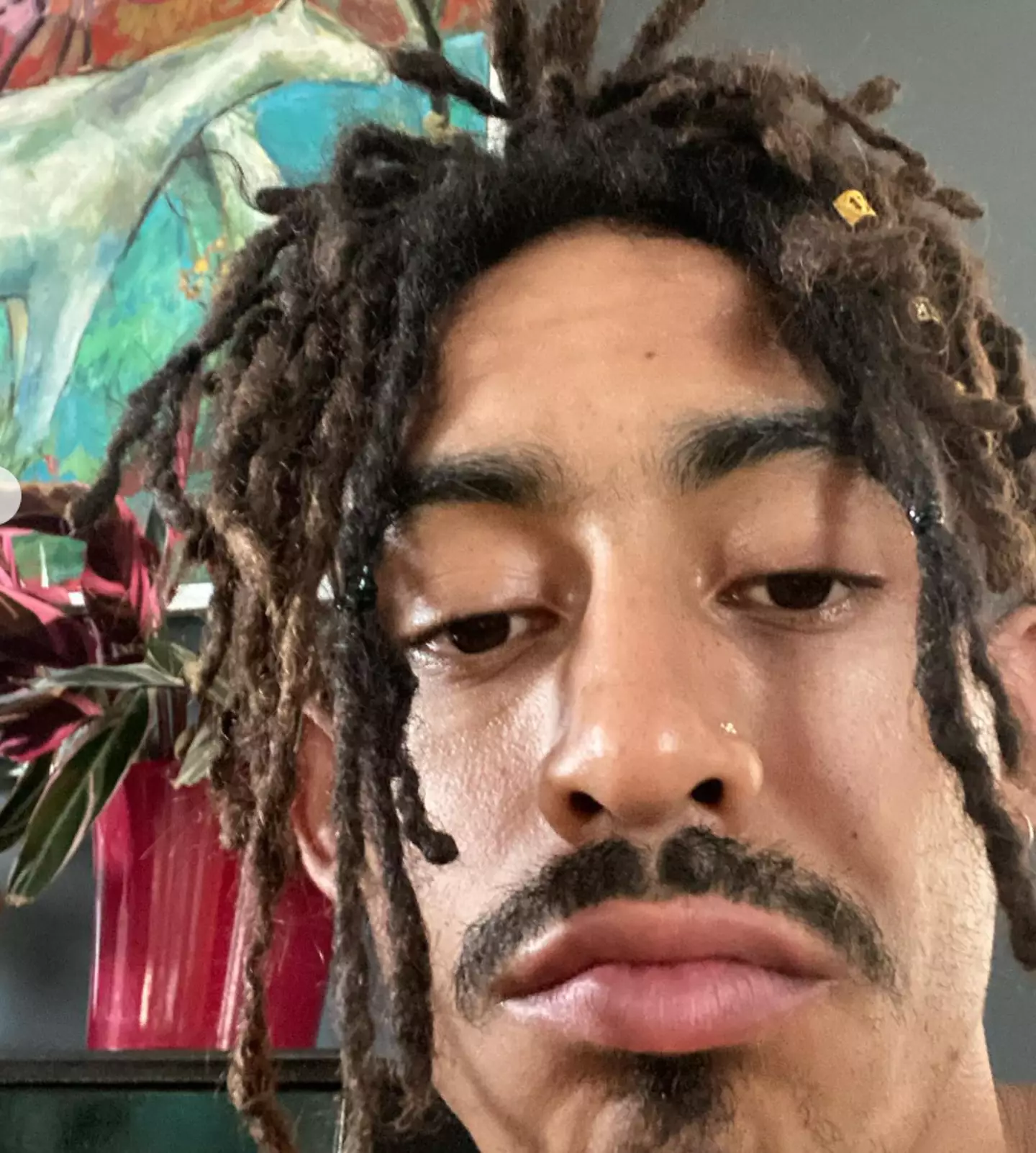
"One thing I’ve been considering writing about a lot is body dysmorphia actually. I think it will help men if I write something about it but it just hasn’t quite formed in my head. But I actually really struggle with it. I’ve spoken a lot about my other sh*t that I’ve dealt with in the past, but I’ve kind of got through a lot of that, do you know what I mean?
"I think it’s just creeped... Seeped into the male consciousness and hasn’t necessarily been identified so much... I can’t talk on behalf of everyone, but it’s definitely something I’ve struggled with for years actually.
"And I’m looking just to do some stuff to change that,' he says.
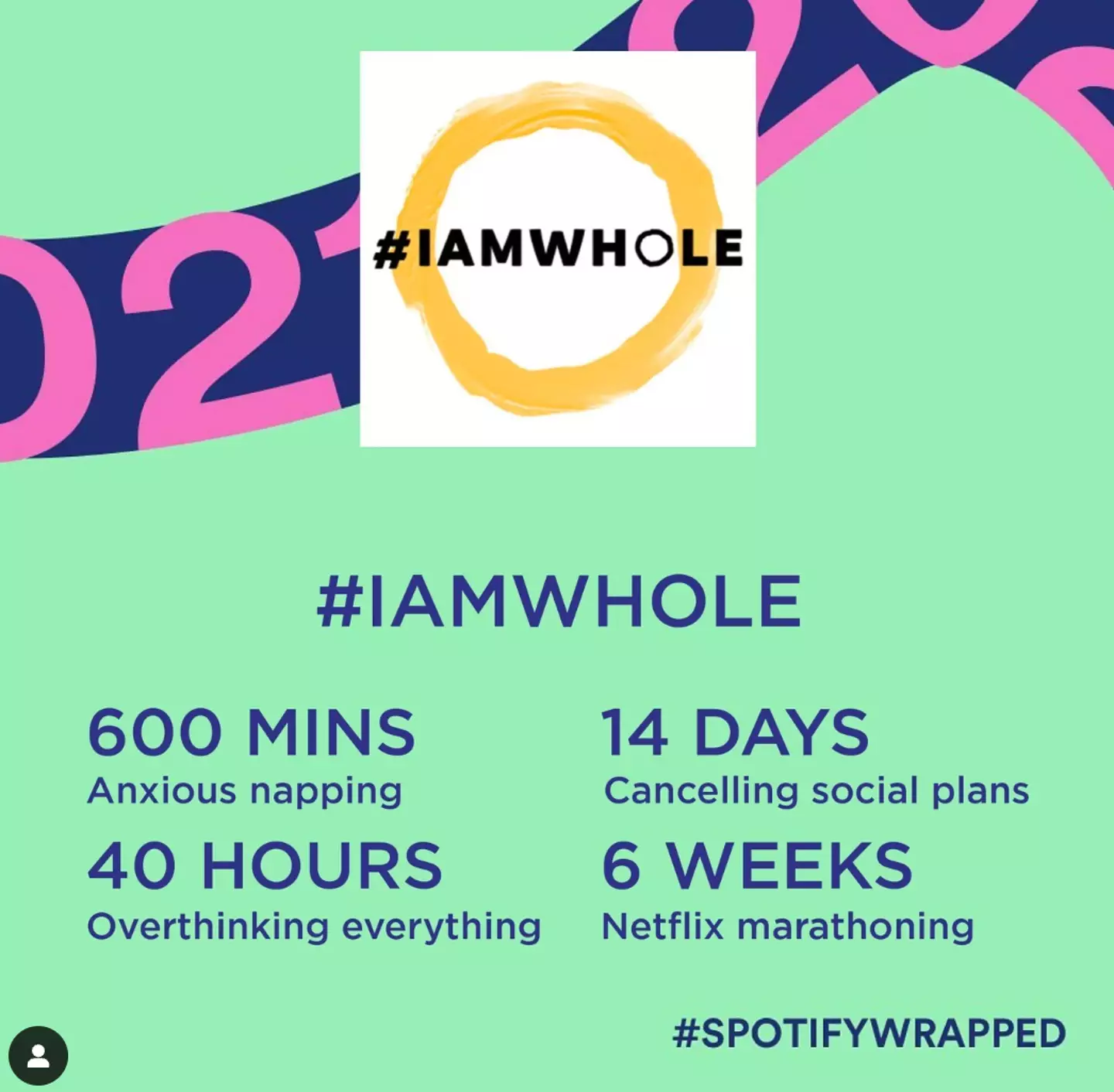
Branding the gym a 'body dysmorphia cauldron', the star thinks the 'idea of male body image might have just got out of people's reach a little bit'.
"Whether in the 50s/60s you’ve got these men with dad bods smoking cigars and people think it’s kinda dope, now it’s like... f*cking, huge muscly men, just fighting aliens constantly.
"I know a little nine-year-old boy, my girlfriend’s nephew, who talks about having abs and I’m like, 'You’re nine bro'."
The pressures Jordan feels men face around money and body image are added to by the fear of meaningful connection.
"I grew up with a massive stigma around men talking about love, and sometimes that can get in the way of understanding or sharing or talking frankly about how to create genuinely harmonious bonds [...] So you know, whatever form of relationship you believe in – I don’t necessarily believe in like a binary notion of relationships – but, some sense of love and intimacy is really important for men, even if it's just friendship with other men," he adds.
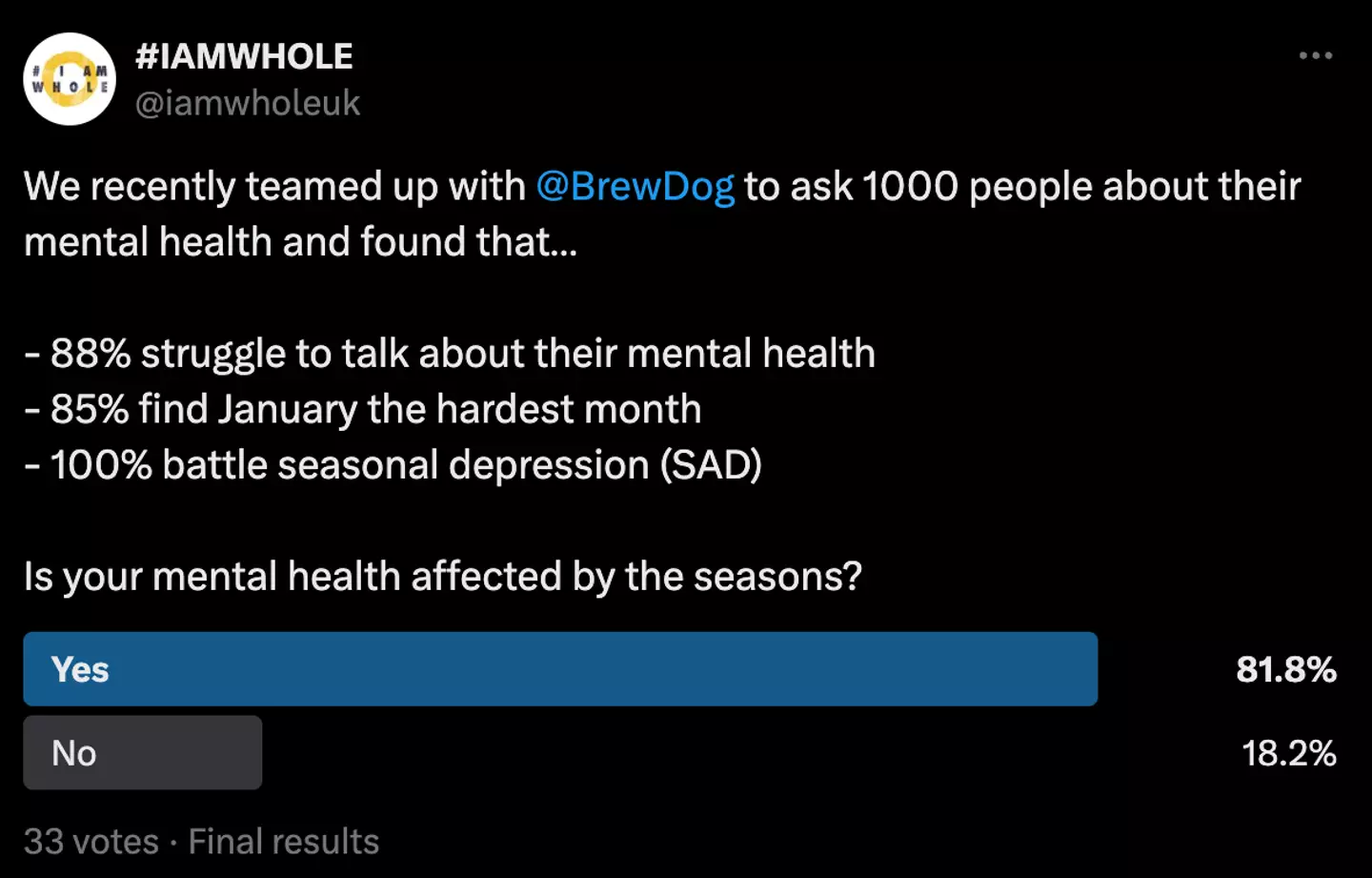
In a bid to boost sales, many bars have attempted to revamp Dry January to – you guessed it – Wet January. Those who do encourage an alcoholic Wet January subsequently prey on those who are mentally vulnerable to drink the 'blue' month away.
Alcohol is a known depressant, and drinking it can lead to 'a range of mental health issues from depression and memory loss, to suicide', as per DrinkAware.
So in January, which SAD AF notes is proven to worsen mental wellbeing for 84 percent of those who have mental health problems, why do some companies promote alcohol more?
Only 56 percent of people are aware that SAD is a recognised cause of depression and anxiety, which leaves those with mental health troubles even more vulnerable and in need of support.
Subsequently, #IAMWHOLE and BrewDog's newly launched non-alcoholic beer campaign, SAD AF, not only hopes to 'reclaim the word 'SAD' to not 'be seen as such a negative thing' but 'a fluid process that everyone can engage with and feel part of', aiming to bring men together to talk in a setting they feel comfortable in.
"Well, the centrepiece of this is that it’s an alcohol-free beer. I myself am sober, and [on] January 8, I was four years sober. And, the reason why it's so important to us at #IAMWHOLE – I’m talking on behalf of everyone on the campaign – is because as we all know, I think men struggle to maybe come to terms with this emotional world perhaps, with differences generationally, but generally speaking,' Jordan says.
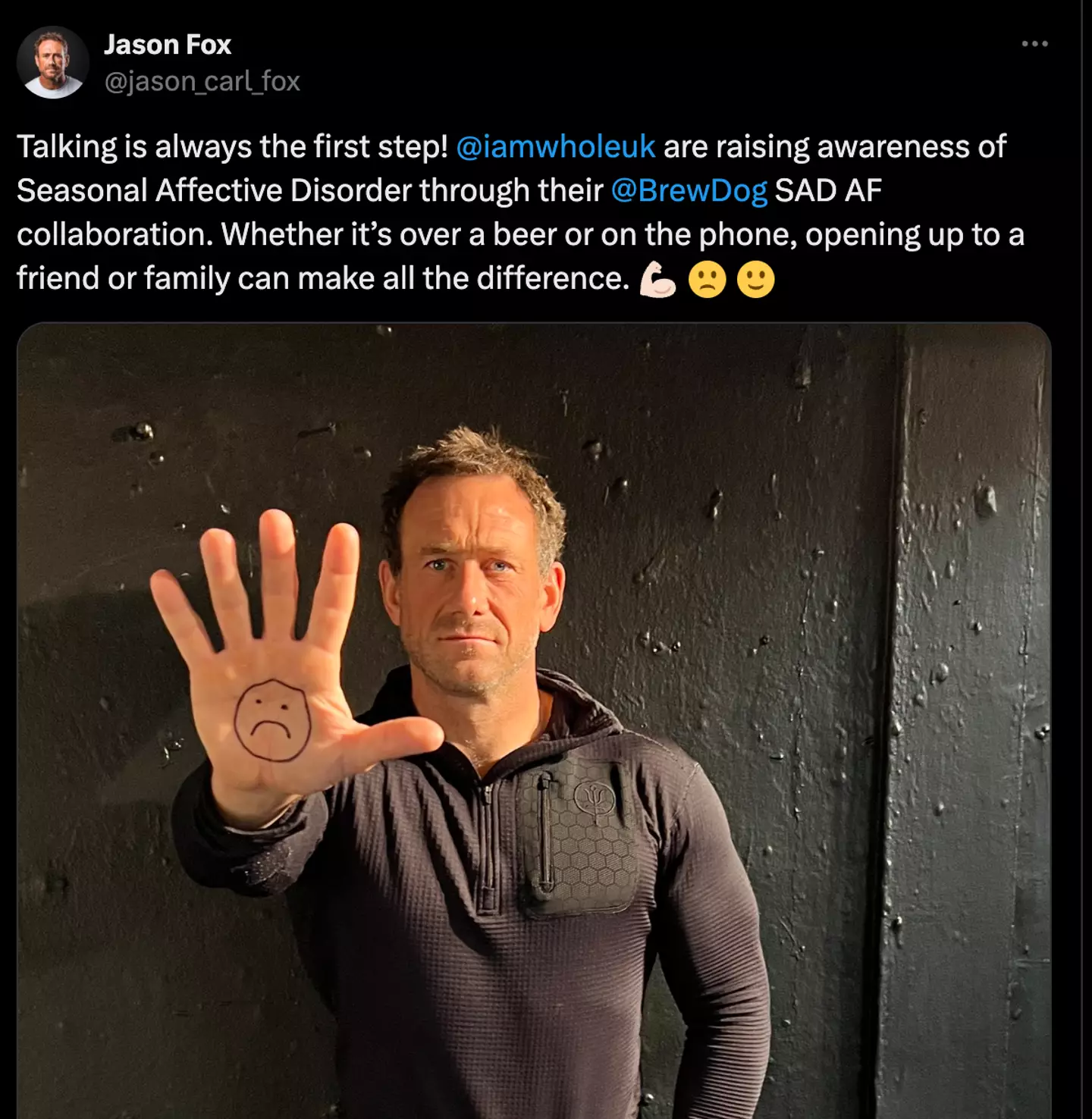
Similarly to Samaritans, which is suggesting a brew and a chat, BrewDog and #IAMWHOLE's SAD AF emulates the same message.
Jordan says: "For men especially, the idea of a place whether that’s to drink or to sit, historically a pub, [...] we want to encourage the meeting of people in a social space wherever that may be.'
"We want to encourage that and our compromise is, well here is an alcohol-free beer and the important part is that you guys sit and chat with each other – not necessarily the drinking aspect, you know what I mean? So, that is us being realistic about the country we live in and system we live in and doing our best to get the message to the people who need to hear it."
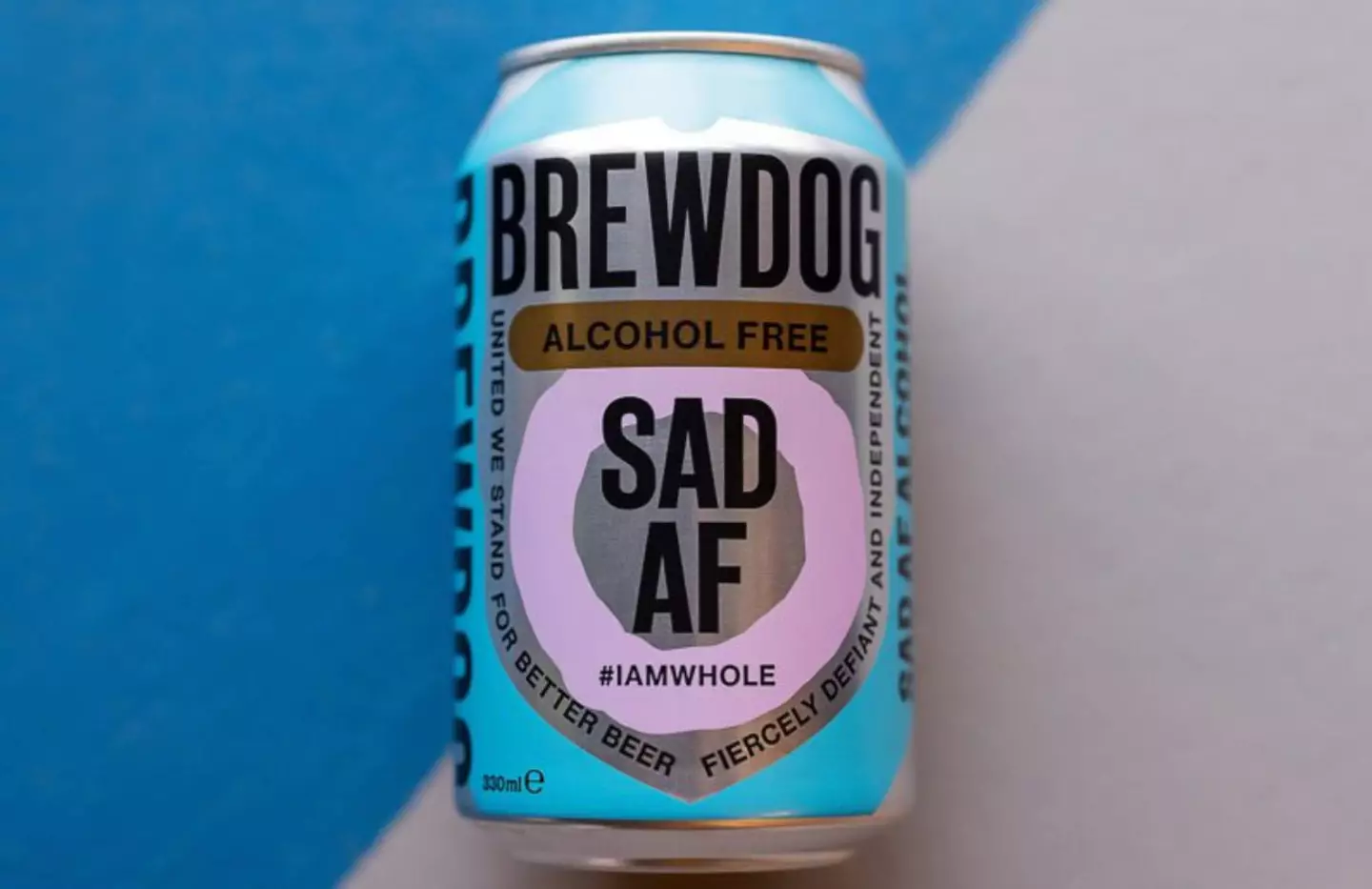
Fair enough, companies have to sell their items. But to continue the idea of there being a 'most depressing day' of the year – when it's not scientifically proven and could even be seen to just trigger a placebo effect – all to simply make a profit simply seems wrong.
Instead, 100 percent of the profits made from the BrewDog beer will go back into the campaign to raise funds for 'one of the biggest-ever research projects into men's mental health'.
Unlike other brands that use Blue Monday to prey on people's mental vulnerability, the beer has been thought about with the consumer's mental wellbeing in mind, and not just that, but central to its consideration and aims.
Jordan adds: "Sometimes things need to be commodified in that way, do you know what I mean? And we’ll ensure it goes to somewhere decent."
Sitting down with Jordan, I thought I had a clear idea of exactly what sort of article I was going to write – a debate around the damaging associations of 'Blue Monday' and how it was first coined by a travel company with capitalist intent.
Blue Monday quite simply shouldn't exist. It has been described as 'baseless', the man who first used the phrase has since campaigned against it, and it trivialises a mental health epidemic in which anyone can be depressed and unhappy any day of the year.
But, if the term has facilitated the conversation that has occurred between myself and Jordan, highlighted the effects of SAD and promoted open conversation around mental health and men being more open about theirs, then maybe, just maybe, it was worth it.
You can find out more about the #IAMWHOLE movement via its Instagram, Twitter or website
If you've been affected by any of the issues in this article and want to speak to someone in confidence, you can contact men's health charity Movember here
If you've been affected by any of the issues in this article and would like to speak with someone in confidence, call the BEAT Eating Disorders helpline on 0808 801 0677. Helplines are open 365 days a year from 9am–8pm during the week, and 4pm–8pm on weekends and bank holidays. Alternatively, you can try the one-to-one webchat
Topics: Celebrity, Music, UK News, Food and Drink, Mental Health, Health, Psychology